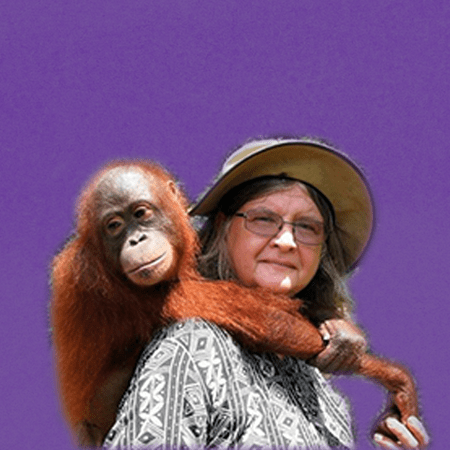International Women's Day 2023
While there have been determined efforts over the past decade to try and bridge the gender gap, the most recent report from the World Economic Forum suggests that gender parity may not be achieved for another 132 years. In the tech sector, which makes an outsized contribution to the US economy, women currently hold only 26.7% of tech-related jobs. 2022 saw women earn an average of only 82% of what men did in the US. In short, there is still much work to be done to advocate for policies and programs that promote women’s empowerment and gender equality, and to challenge the systemic barriers and biases that hold women back.
This year’s International Women’s day theme –– #EmbraceEquity –– explores the need to allocate the resources and opportunities needed to reach an equal outcome and ensure that women have what they need to be successful. We spoke to six women across different generations, disciplines and geographies from Schmidt Futures’ network of talent to explore the challenges they’ve faced, how they believe the idea of equity has evolved over time, and how they continue to support and uplift women around them.
Schmidt Futures would like to thank Katie Hafner of the Lost Women of Science podcast for her contribution in moderating a selection of the interviews conducted for this piece.
What does equity mean to you in 2023?

I firmly believe equity in 2023 must be unapologetically intersectional and include all women, as undoing systemic misogyny should be in line with – not opposed to – combating similar structures of ableism, classism, racism, homophobia, and transphobia.
Tomorrow’s equity will require us to develop entirely new policies that do not simply reallocate the struggles of privileged women to a different marginalized group. I don’t have the answer for how to do this, but I am hopeful that bold thinking will allow us to build a better future for all.

For me, equity today is stripping prejudices of people’s genders.
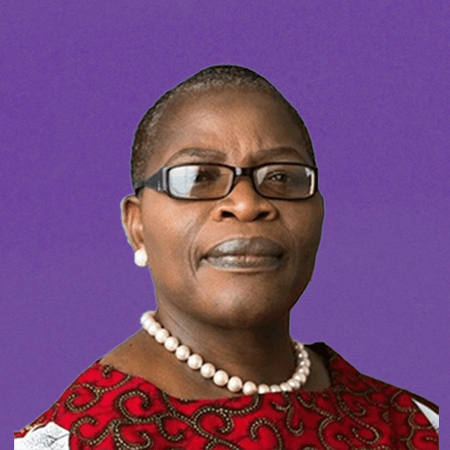
Before you get to equality, you need to embrace the concept of equity. Equity is being clear and deliberate about treating men and women with fairness. And that process requires addressing the historical and traditional barriers that have kept women very much unequal to men.
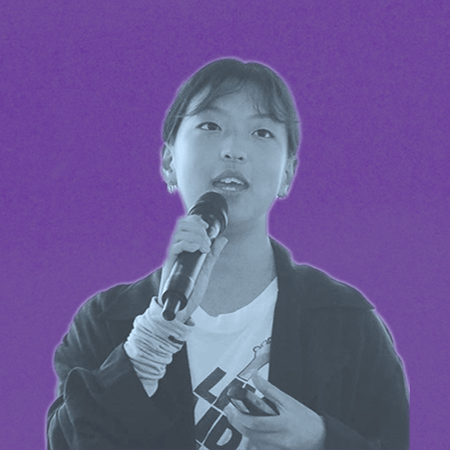
Equity and equality for women means being treated the same regardless of the boundaries of gender. This would mean that we have to step back from status quo and old perceptions of gender whether male or female or anywhere in between, to make room for individuality to shine first before gender perception can define the person.
Was there a catalyst that got you where you are today?

I come from a very strong lineage of strong women. My mother was not a shrunken violet at all. She was built up on my grandmother, who was a riot. To see that they stood their ground with the minimal education they had — being principled and vocal — was such a strong influence on me. I realized it doesn’t matter what anybody thinks of me. I must never swallow my voice, like many women are conditioned to do.
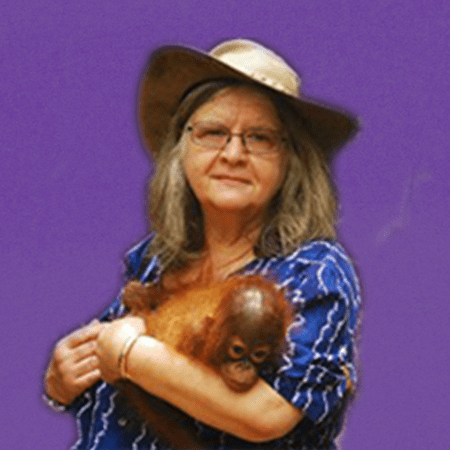
There were many that helped me do what I do. My teachers in elementary school, my teachers in high school, even my teachers in university. And then of course, there was the Louis Leakey who became my mentor. I was a shy, but also a pushy kid. And for some reason, people seemed to encourage me. I especially remember my high school physics teacher, who told me as I was leaving class one day that I would “make a great scientist some day.” I certainly didn’t think I had shown much talent in physics, so his words gave me confidence.

I was born and raised in a small town called İnebolu in Northern Turkey. When I was younger, I took a computer class, and the teacher would focus on the boys in the class. She’d tell me “I’m writing out a problem, but you don’t have to work on it –– you can read a book if you want. I know boys are more into these kind of subjects. You probably won’t be an engineer in the future, sweetheart.”
That experience made me question why I had to pursue a “female” career. Why can’t I be an engineer if I want to? I’m always trying to show girls younger than I am that they can do anything they want.
What kind of prejudice has persisted across generations?

We’re facing the same problems, but in different ways. Women are still strongly judged and evaluated based on their appearance. In the old days, you could get away or have respites from some of these judgments. With social media now, they feel inescapable.

In the past few years, theres been a backtrack that has occurred. I’ve experienced men making comments related to tenure track like “well its so easy to become a professor now as a woman because that is who people want to hire” whereas when a straight white man becomes a professor, its “so impressive they have achieved the impossible.” It’s a dangerous assumption that we live in this “post feminist world,” when that isn’t the case.
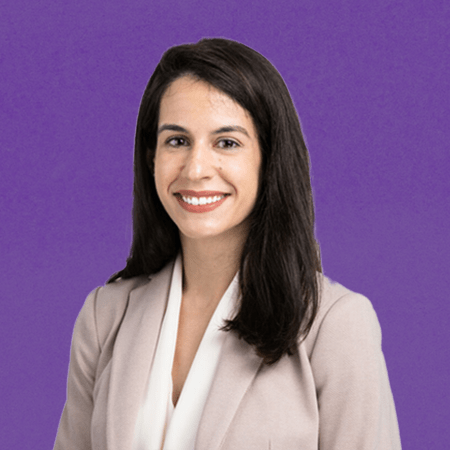
In my graduate cohort of aspiring mathematicians –– 30 people in total –– only 4 or 5 were female. It’s far from 50/50. I don’t know why, but the more specialized you go in any discipline, the less women you find. It can feel very isolating.

In my generation, when you’re the only girl in the room, the boys think “oh wow you are the only girl here, you must be proud!” They assume that women are competitive with each other and want to beat each other at things. I do not understand this idea. I want more girls to be here too.

From the outset, women are not expected to be leaders — there were not many examples of women in leadership positions (in political, social and economic leadership), so it became associated with the male gender. In my generation, the key driver of having opportunity was having access to quality education. And in some of the countries around the world, women did not immediately have access to it. When economic imperatives stood in the way of families, they always chose to educate the son. So the girl would have to do something else — they did not have access to land, finance, technical resources to enable them to be as productive as their male counterparts across a spectrum of industry. So, women struggled and trailed behind men. And now there are new patterns that old ones have created. But in the course of my generation, we have seen some changes that have been very important. We have moved from a situation where we had less than 5% female representation in politics, to the global average today which is 23-24% of women in politics. We have become more accustomed to the idea that women can be presidents or prime ministers of countries. In Africa, we take pride in the fact that we had a female president before the United States did.
How do you think women can best support each other?

I try to follow up with and help women who reach out to me with an interest in applying to grad school or a fellowship. I try and take the time to have a zoom call or a quick chat with them to review material and give them feedback. Things that don’t take a lot of time. I also try to get involved in activities like “girls day” at MIT where women in the STEM field tell young girls “this is what you can do!”

Social media is the magical land of my generation, so we are always trying to do things online. For example we have a page called “STEM Girls” where we are uploaded STEM related videos to reach girls of our generation.

I try and pay it forward. I work with young women especially in high school, because it’s important to get to people at an early stage and let them know somebody believes in them. Also, “woman” is a broad term, so I make sure to cast a wide net, and not only help women who look like me but also include many different types of women.

We should be able to have resources that will support girls’ aspirations, where, even if they don’t have validation and positive environment in their families, they can go to a place where they can quickly identity their self imposed barriers, which often are self esteem issues, which often are low ambition issues, which often are issues of helplessness.
If you could give advice to a younger version of yourself, what would it be?

Don’t doubt yourself based on the feedback people give you. I’ve learned from my mentors that you’re allowed to feel those disappointed feelings, but that it’s also important to know when to stick to your guns.

Be more confident. As a girl who wants to be an engineer in the future, I always tell myself to be humble. Be confident and true about what you want to do and keep going.

Get advice from as many people as possible, but also be cognizant of who is giving that advice and the biases they could hold. Get lots of different perspectives.

Take only well grounded criticism. Use that criticism to grow and improve, and use the other, worse criticism to identify people that you dont want to keep too close in the future.
What's one dream or aspiration you have over the next decade?

I have been tremendously lucky with the mentorship I have received in the past, and hope to pay this forward to the next generation of scientists with whom I will share my passion for developmental and regenerative biology as the principal investigator of my own research group. Fingers crossed!

My dream over the next decade is that all visually impaired students in Turkey (my country), have free access to audio books.

I want to contribute to a 5% increase in Japanese youth voter turnout by working with more local governments to make sure youth feel enough hope and transparency in their government to want to vote.
